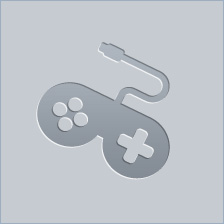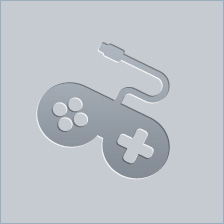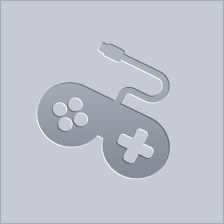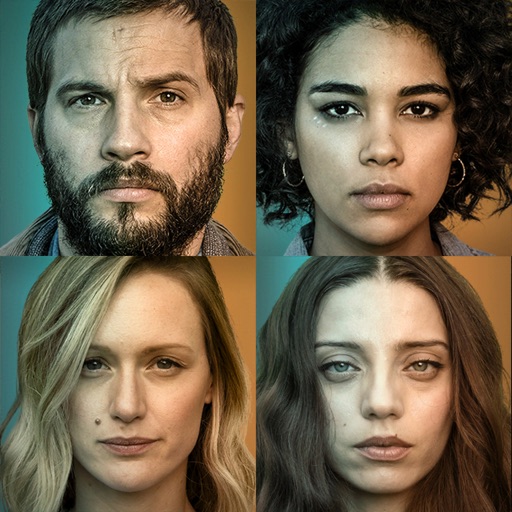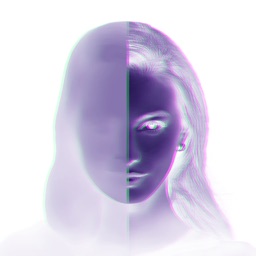PortraitCam • Ultimate Camera

PortraitCam ($3.99) by BrainFeverMedia is an app to help you achieve great depth effects on your photos, regardless of whether you have an iPhone capable of Portrait Mode or not. If you're looking to create some great portraits, then this app can definitely help. It's similar to apps like Patch, but with more features.
Ever since I got the original iPhone back in 2008, I fell in love with mobile photography. The camera specs weren't that great back then, but it was amazing just having a mobile device that was capable of snapping pics in an instant. Because even though the picture may be crap compared to today's standards, the memories will always remain, and that's why I love photography. With the iPhone 4, the camera upped the ante for the industry, and then just got better and better from there. Apple added Portrait Mode with the iPhone 7 Plus, which I missed out on as I had gotten an iPhone 7 that year instead. Now with my iPhone 8 Plus, I finally have Portrait Mode myself, and I use it whenever I can. Still, since I don't have an iPhone X, I don't have Portrait Mode with the front-facing camera. So I decided to give PortraitCam a shot to help out with my selfie game.
App Feels Like
App Feels Like
Interface-wise, PortraitCam is pretty simple and intuitive. The main screen of the app easily lets users choose whether to import an existing image from their Photo Library, or you can snap a new pic with the camera. In PortraitCam, you can use either the front or rear facing camera. If you don't have a device that's capable of Portrait Mode, then you can achieve similar effects with PortraitCam, which is nice. Those of you with an iPhone X, PortraitCam utilizes the X's TrueDepth Camera to preview and capture depth data, giving even better results.
PortraitCam can automatically detect faces in images, or you can fine-tune the depth masking by painting the sections you want to focus on. All of the tools in PortraitCam are categorized: Blur, Mask, Flares, and Filters. This makes it easy to find what you're looking for, and there's a lot of useful features at your disposal. The app is mostly responsive and effects are rendered quickly, so you get results instantaneously.
During my use of PortraitCam, I've found it to be a useful tool to add to my photography app arsenal. I don't take many selfies often, but ever since I've started using Portrait Mode on my iPhone 8 Plus, I wish I had the same functionality on my front-facing camera. With PortraitCam, now it doesn't matter if I take the occasional selfie, because I can edit it in this app and get pretty cool effects.
By default, PortraitCam will be set to Auto during the Face Detection stage, where it tries to automatically determine the faces in the photograph you've either imported or snapped within the app. For the most part, this auto detection works well, as it will get most of the faces masked for focus. But I did notice that sometimes it will miss some of my hair, or my glasses throw it off a bit (strong prescription so it shrinks what's behind the lens). So for me, I will always have to manually paint the focus mask on the smaller zones in the image. Fortunately, the brush works well enough and if you make a mistake, there's the eraser that's just as easy to use. There's also an undo and redo buttons for easy fixing.
Once you have your focus area set, the rest of the image gets blurred out. In the editing stage, you have a lot of options to go with. The default blur setting should be around the 25 percent mark, but you can adjust the blur amount by using the slider. If you want a more subtle effect, have it more towards the left, and for more blur, go right. With more blur, it's a much more stark contrast between the subject and the background, to the point where it definitely feels unnatural. So I recommend keeping it more to the left if possible, unless you have a background that works really well the more it's blurred.
PortraitCam also has tools like Aperture, which changes the shape of the blur. This can be a very subtle change, and sometimes you won't even notice the difference between them. There's plenty more that you can change with regards to the blurring: spin, highlights, fringe, depth, invert (subject blurred and background in focus), and depth map. There's even basic editing tools like exposure, vignette, and crop. If you need things like brightness, saturation, and the like, then you'll need another photo editor for that, since PortraitCam mostly focuses on the depth effect editing.
In the Mask category, users can edit the mask for the focus region, as well as choose between four different mask types: Depth Map (default), Radial, Landscape, and Gradient. If you're using PortraitCam mostly for portraits, then the Depth Map is usually what you'll stick with. But the other effects can be useful for scenery or inanimate objects, so it's nice to experiment with for interesting results.
To spice things up, PortraitCam has both flares and filters that you can apply to your images for fun. The Flares add various light flares to your image (so you can be like J.J. Abrams), and you can adjust the bloom, opacity, and even flip horizontally or vertically if you prefer it in a different originating spot. Filters has a handful of different vintage, black & white, and color filters that can change the overall mood and tone of your portrait. Unfortunately, you're limited to what the app offers, so if you aren't satisfied with what's available, you'll need to use another photo editing app.
When you're done editing your portraits, just tap on the Share button in the top right corner. You can save the photo directly to your Camera Roll, send it to Instagram or Tumblr, and the "More" option brings up the iOS Share Sheet.
Another nice feature with PortraitCam is the fact that you can quickly go back to your last edited image. On the main screen of the app, there's a "Last Edit" button in the bottom right. Tapping on this takes you directly to the last photo that you were editing, whether it was done or not. You get to pick up right where you left off too. So if you were editing and then had to do something else for a while, coming back to the app later doesn't lose your progress.
PortraitCam brings Portrait Mode to the masses.
The Good
PortraitCam is a good option to consider if you don't have an iPhone that does Portrait Mode. The ability to import existing images for editing or snap a new pic directly from the app means there's a lot of versatility. The interface is also pretty simple and straightforward, and there isn't much of a learning curve so everyone can use it. The blurring effects are flexible and replicate the depth effect well enough for most, and having flares, filters, and other tweaks means more freedom in editing.
The Bad
For the most part, PortraitCam works well, but it isn't without some flaws either. I did notice that sometimes the app didn't seem to register my taps, such as when I want to select an area to focus on, or a button for a tool. It usually will work if I tap it again, but it does seem to need a bit more optimization.
Another thing that I noticed with my use of PortraitCam is the fact that the edges of the focus region are definitely sharper than I'd like, as it is a fairly stark contrast with the blur in the background. I can tell a difference between what the actual Portrait Mode on the iPhone 8 Plus and something edited with PortraitCam because of the sharp edges. I wish that it would make the transition from focused to blur more gradual, as that would make it look and feel more natural. Still, if you have a subtle blur, then it's not too bad.
The verdict
For what it's worth, PortraitCam is a decent tool for photographers. I like the auto detecting of faces, and with some patience, you can fine-tune the focus area by painting the mask in yourself. There are a lot of options to customize the blur, and the lighting flares and filters are a nice plus. Overall, I like having PortraitCam around, but I do hope that improvements are made so that the edited portraits feel closer to what Portrait Mode does with gradual transitions.
PortraitCam can be found on the App Store as a universal download for the iPhone and iPad for $3.99.

